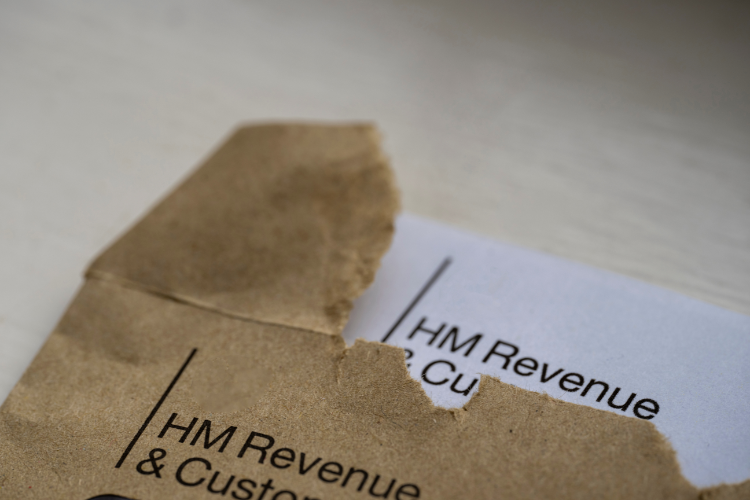Raising Standards in the Tax Profession: UK Government Proposes Regulator Framework and Improving Registration

The Tax Profession at a Crossroads
Since 1948, Jack Ross Chartered Accountants has provided state-of-the-art accounting services in Greater Manchester and beyond. We pride ourselves on our dedication to financial integrity and technological innovation. Whether you are a sole trader or a large corporation, our clients are our priority.
If you need our expert accounting services, fill out this contact form to book a free consultation.
The tax advice market in the UK is changing. Recent discussions have centred on the necessity to elevate standards within the tax profession, spearheaded by HMRC and backed by various professional bodies. This move towards a more regulated environment is not merely about tightening the reins but is aimed at nurturing a culture of excellence and trust among tax practitioners.
Jack Ross Chartered Accountants is a longstanding member of the ICAEW, the Register of Statutory Auditors and the Chartered Institute of Taxation. Our accountants are AAT Licenced and take pride in their commitment to compliance and membership of professional bodies.
The Rationale Behind Regulating Tax Practitioners
Regulating tax practitioners would protect the integrity of the tax system and safeguard the interests of taxpayers. The tax advice market, bustling with a diverse range of service providers, from accountants to specialised tax advisors, is witnessing a push towards eliminating disparities in service quality. The proposal to introduce a regulatory framework would ensure that all tax practitioners adhere to a consistent set of standards, thus raising the bar for professional conduct and expertise across the board.
HMRC’s Role and the Consultation Process
HMRC is instrumental in driving for this change. Recognising the challenges and the potential risks posed by unregulated tax advice, HMRC embarked on a consultation process, seeking insights from stakeholders across the profession. This collaborative approach underscores the government’s commitment to not only raise standards but also to address the issue of tax avoidance schemes that threaten the fairness of the tax system. The full consultation can be found here.
First class service for many years from a first class team. Highly recommended. Prompt, commercially aware, personable.
Been using Jack Ross for a number of years. Good clear advice and nice people to do business with.
Three Potential Ways Forward for Tax Professionals
Mandatory Membership of a Professional Body
In the government’s consultation paper, the first of the three potential ways forward discussed is mandatory membership of an existing professional body. This makes ostensible sense, as anybody offering good, compliant tax advice should be able to obtain qualifications that prove they know the law. However, there is a worry about the administrative and financial burden this places on smaller businesses, especially sole traders.
A Hybrid Model
A second option would involve professional bodies looking after their own members, and HMRC regulating any tax advisors who are not members of professional bodies. This works well in theory, but in practice would involve HMRC obtaining greater oversight and reach over their own matters with an already stretched budget and workforce. Given the recent controversy surrounding HMRC’s service quality, it is unclear if this would be a wise or even feasible solution.
An Entirely New Regulatory Body?
A third option is an entirely new regulatory body specifically for the tax profession, with mandatory membership for anyone offering professional tax advice. This would be a costly and longwinded solution, with stakeholders unsure if more regulation and red tape is what the industry needs. However, it could result in raised industry standards and will definitely remain a possibility for the time being.
Embracing Change for the Better
Through communication between HMRC, professional bodies, and practitioners, the UK is setting the stage for a more accountable and professional tax advice market. It is important members of the industry stay engaged with the consultation process and offer HMRC their honest feedback on any proposals moving forward; only then can we improve things for ourselves and our clients.
Looking for comprehensive accounting solutions that you can trust? Fill in the contact form below and a member of our dedicated team will contact you to discuss next steps.
The proposed regulatory framework for the tax profession aims to raise standards within the tax advice market by introducing a set of rules and standards that tax practitioners must adhere to. This initiative, led by HMRC, seeks to ensure that individuals and businesses receive high-quality tax advice, reduce tax avoidance activities, and enhance the overall integrity of the tax system. The framework includes measures such as mandatory professional indemnity insurance for tax advisers, registration requirements, and adherence to ethical standards set by recognized professional bodies.
The impact on tax practitioners will be significant, as they will need to ensure compliance with the new standards and regulations. This will likely include undergoing periodic training, securing adequate professional indemnity insurance, and potentially joining a recognised professional body if not already a member. The framework aims to raise standards within the tax profession, meaning that practitioners will have to demonstrate a commitment to continual professional development and adherence to ethical standards. Those who comply will benefit from a strengthened reputation, while non-compliance could result in sanctions or removal from the registry of approved tax advisors.
Professional bodies will play a crucial role in the new regulatory framework, acting as a bridge between HMRC and tax practitioners. They are expected to assist in setting and maintaining professional standards, providing educational resources, and enforcing disciplinary measures for members who fail to comply with the regulation. Additionally, these bodies will likely be involved in the accreditation and registration process for tax advisors, helping to ensure that only those who meet the required standards are allowed to provide tax advice.
Get In Touch With Jack Ross
Looking for comprehensive accounting solutions that you can trust? Fill in the contact form below and a member of our dedicated team will contact you to discuss next steps.